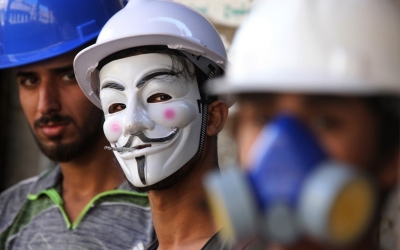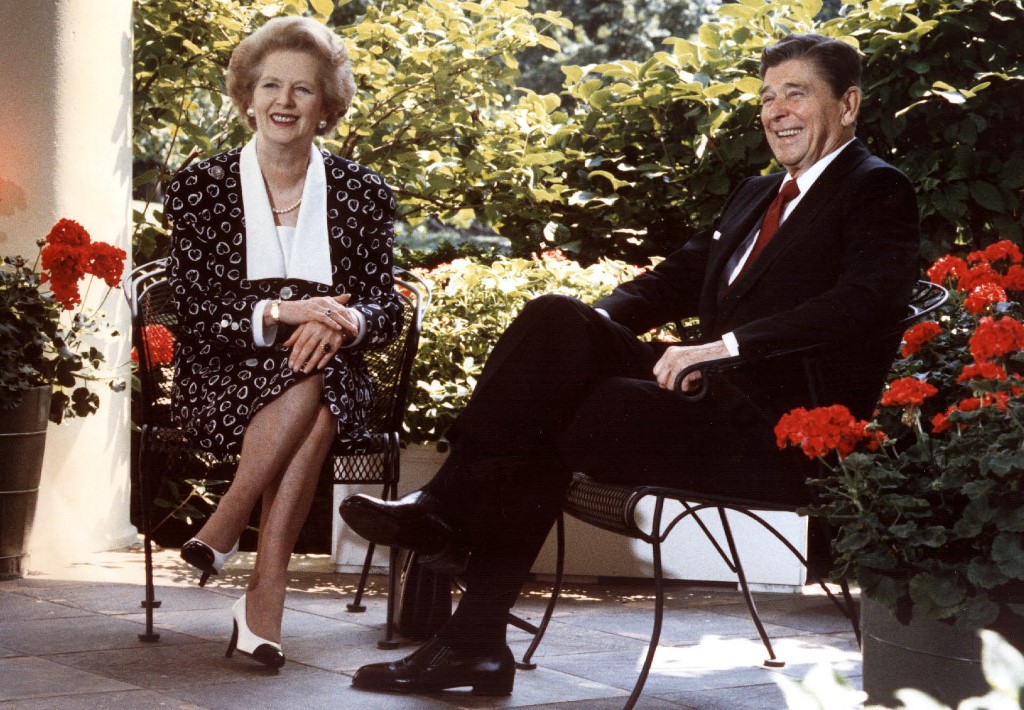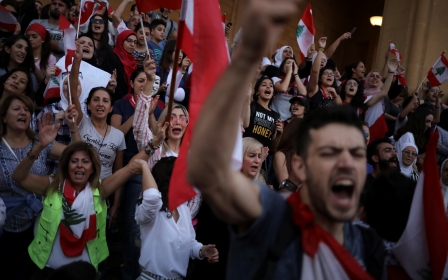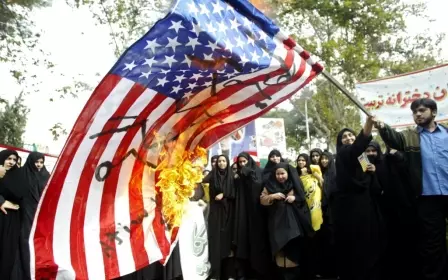Economic democracy is the missing link in the struggle for human rights
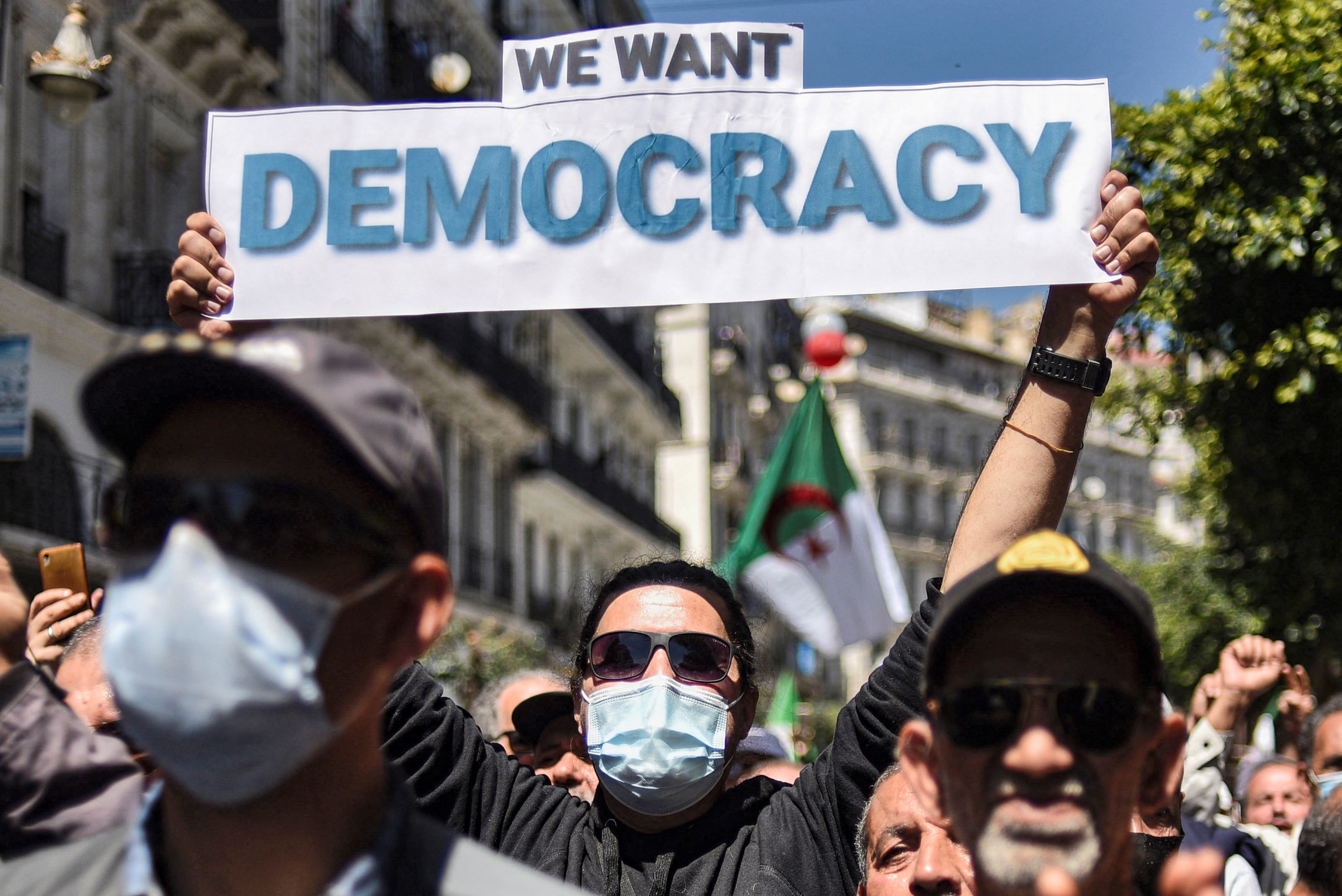
Common wisdom defines political democracy in capitalist, corporate-controlled states to mean political elections and political rights, leaving out decisions about the most important issues affecting people’s lives - food, housing, work, health and wealth.
In contrast, the basis of economic democracy is that everyone should have an equal say in the just distribution of a country’s wealth among the citizenry - not just the unelected, or the elected few, who represent the wealthy non-working classes, who in turn run the economy as a dictatorship.
What the US has fought since the early 1950s - and is still fighting today - is any attempt at economic democracy in the Third World
As the end of formal colonialism was spreading in the wake of World War II, most Asian and African leaders of independence struggles understood that political independence from colonialism could only be meaningful if it led also to economic independence from neocolonialism, without which the countries would remain under imperialist economic dictatorship. Leaders such as Ghana’s Kwame Nkrumah, Indonesia’s Sukarno and Egypt’s Gamal Abdel Nasser, among many others, sought to bring about such independence and economic democracy.
The Soviet Union was a big supporter of these efforts to “develop” the economic capacity of decolonising countries as the only route to rebuild societies and economies ravaged by the European colonialism of such “liberal” states as Britain, France, pre-fascist Italy and Holland, and less liberal ones, such as Germany, Portugal, Belgium, Spain and fascist Italy.
Emergent leaders in post-WWII Latin America sought out similar policies to bring about a measure of economic democracy, from Guatemala’s Jacobo Arbenz to Brazil’s Joao Goulart and Cuba’s Fidel Castro, to name the most prominent.
New MEE newsletter: Jerusalem Dispatch
Sign up to get the latest insights and analysis on Israel-Palestine, alongside Turkey Unpacked and other MEE newsletters
Colonial depredation
As economic development and nationalisation of resources gained momentum and began to undo the horrors of European colonial depredation in the realms of education, healthcare, redistribution of national wealth, elimination of poverty, and development of economic capacity and productivity of these countries, the US sought to undermine each effort.
It arranged in 1953 for the overthrow of Prime Minister Mohammad Mosaddegh, who sought to nationalise the oil industry and redistribute its wealth to the Iranian people, and restored the shah. Soon to follow was the US overthrow of Arbenz in Guatemala, who merely attempted some land reforms to redress the poverty of the country’s majority peasant population.
In 1957, the US coordinated with King Hussein of Jordan a palace coup that overthrew Prime Minister Suleiman al-Nabulsi, who sought political and economic decolonisation of his country. In 1961, the US arranged the assassination of the Democratic Republic of the Congo’s Patrice Lumumba, who sought economic independence, and replaced him with the thug and thief Mobutu as its proxy dictator.
In 1965, the US overthrew Sukarno and arranged for a genocidal massacre of upwards of a million Indonesians. In 1966, it overthrew Ghana’s Nkrumah. While still conducting its massive invasions of Southeast Asia, the US spectacularly overthrew Chile’s Salvador Allende in 1973, and ushered in the age of neoliberalism.
What the US has fought since the early 1950s - and is still fighting today - is any attempt at economic democracy in the Third World. It has also opposed political democracy across the Third World, due to its realistic fear that local communist or socialist parties committed to economic democracy would win out and obtain Soviet support.
Down like dominoes
After Allende was overthrown, University of Chicago neoliberal economists, disciples of Milton Friedman, were put in charge of Chile’s economic wealth and reversed Allende’s policies. Egypt under the Anwar Sadat regime was the next neoliberal experiment that undid many of the economic achievements of Nasser.
Across the Third World, welfare states went down like dominoes - especially after the advent of Ronald Reagan in the US and Margaret Thatcher in the UK, and the imposition via the World Bank and the International Monetary Fund (IMF) of the so-called Washington Consensus, requiring austerity, deregulation, trade liberalisation and privatisation of public assets.
But these transformations did not take place peacefully. The peoples of Asia, Africa and Latin America continued to fight for economic democracy throughout the 1970s. Several revolutionary attempts were initially successful - in Ethiopia; across Southeast Asia; in Africa’s Portuguese colonies of Angola, Mozambique and Guinea-Bissau; in Afghanistan and Iran; in Nicaragua; and in Rhodesia-Zimbabwe. Others were put down in the 1980s with such ferocity, as in El Salvador and Guatemala, that they never recovered. With the collapse of the Soviet Union in 1991, there was no longer a power left that could support those who sought economic independence from the depredations of imperial capital.
On the ideological plane, imperialist liberal powers drowned the world in the liberal discourse of human rights, a weapon initially developed to fight the Soviet Union and Third World countries that sought economic democracy and independence. Since the 1970s, the West had cemented this discourse with thousands of western-financed non-governmental organisations, which supplanted local, grassroots political and labour organisations around the globe with a western-sponsored “civil society”.
These human rights NGOs never cease to condemn the “human rights” violations by anti-colonial regimes who pushed for economic democracy, while remaining mostly muted on the violations and abrogation by the neoliberal regimes that replaced them of the erstwhile economic rights of the citizenry.
Violating human rights
In line with neoliberal capitalist economics, the US and EU understanding of human rights excises economic rights from its definition, just as their main economic instruments - the World Bank and IMF - wreak havoc around the world. Otherwise, the US itself would be a major human rights violator by denying its people universal free healthcare, free higher education, free daycare, the right to work, and the right to housing. Western human rights organisations do not list such trivialities as “human” rights.
The demise of the Soviet Union was the major achievement of imperial policies and neoliberalism. The latter would be immediately imposed on the former socialist world, undoing economic independence from capitalist exploitation and impoverishing the majority of the peoples of Eastern Europe.
What oppresses the majority of the peoples of the world is poverty, and the absence of affordable education, healthcare, jobs and decent housing
As a result, after 1990-91, western advocacy for political democracy became possible once the West ensured it would no longer lead to economic democracy. Since there were mostly no more forces that could successfully call for economic democracy and win free elections, the West began to support political democracy across Eastern Europe and even in Asia, Africa and Latin America, with the power of local and international money.
This, of course, does not mean that western support for dictatorship waned. The West’s spectacular support for the overthrow of elected governments of Venezuela, let alone the governments of Bolivia and Ecuador, where contenders for economic democracy won despite western intervention, stand out.
Still, western opposition to political democracy in the Global South eased significantly. A case in point is the end of apartheid in South Africa in 1994, which was allowed because it could only bring about “political democracy” but not economic redistribution of wealth, which the West insisted could not be part of the deal.
This support for political democracy in the Global South became possible because, as in the US itself, local financial elites and US support and manipulation of local elections could almost always ensure that those elected would be committed agents of US, British and EU neoliberalism and imperial interests.
Proxy dictators
It is in this context that during the 2011 Arab uprisings, the US did not fight hard to keep all its proxy dictators in power, and decided to give a chance to potential alternatives in those places where it could identify competing forces with a commitment to the US version of political democracy, neoliberalism and human rights, and with no commitment to economic democracy.
Once the US effectively removed from the political agenda the central issue of economic democracy and independence, the culture of western liberalism and human rights came to govern all political discourse of Third World elites and intelligentsia - let alone in Eastern Europe.
Local western-sponsored autocrats and financial elites understand that in the age of neoliberalism and the poverty it has wrought, and absent economic bribes to the population, they can only allow a theatrical show of political democratic representation, without a serious commitment to liberal “human” rights. NGOs, however, often oppose this rhetoric by positing differing versions of liberal, imperially sanctioned human (read: political) rights as necessary.
This has become the agenda of the fight between western-financed NGOs, organically linked to the local liberal oppositions and financial elites who support them; and western-supported local servants of autocratic regimes and their elite allies. Indeed, even erstwhile socialists in many of these countries now demand “human” rights and “political” democracy, by which they mean “free elections”, as the antidote to dictatorship and economic devastation.
Post-colonial India, often trotted out by western liberals as a model liberal political democracy, has achieved only massive poverty and economic dictatorship for its peoples, alongside massive police repression of the poor and downtrodden.
Indeed, with the application of neoliberal policies in the West itself - and the massive repression it has engendered in recent years, in addition to the exposure of US “democracy” as a farce controlled by corporations and the elite - the West hardly stands out as an example to emulate either. It is only the laws and regulations instituted during welfare-state eras, which are being eroded, that maintain some of the accountability that still exists in these countries.
Opposing neoliberalism
Contrary to the liberals of the so-called “Arab Spring”, what oppresses Egyptians or Tunisians is not that they cannot freely elect the likes of Hosni Mubarak or Zine El Abidine Ben Ali; nor do Jordanians feel oppressed because they cannot elect their king or prime minister.
What oppresses the majority of the peoples of the world is poverty, and the absence of affordable education, healthcare, jobs and decent housing. I suspect that in free liberal elections, the likes of Mubarak, Ben Ali and the king of Jordan would all be freely elected by the populace, just as enemies of the poor majority are regularly elected in the West, especially in the US.
What western imperialism has achieved in the last four decades is removing the only item on the agenda that could redress the oppression of the majority of the peoples of our planet - namely, economic democracy - and replacing it with non-threatening calls for “free elections” and an amorphous notion of individual, imperially sanctioned “human rights” that are engineered to strengthen, rather than undo, economic dictatorship.
The beneficiaries of this agenda constantly pose as defenders of the people, yet they defend everyone except the poor majority. The first task before those who truly oppose neoliberal economic dictatorship is to strategise and work towards restoring economic democracy to the centre of the global struggle.
The views expressed in this article belong to the author and do not necessarily reflect the editorial policy of Middle East Eye.
Middle East Eye delivers independent and unrivalled coverage and analysis of the Middle East, North Africa and beyond. To learn more about republishing this content and the associated fees, please fill out this form. More about MEE can be found here.



